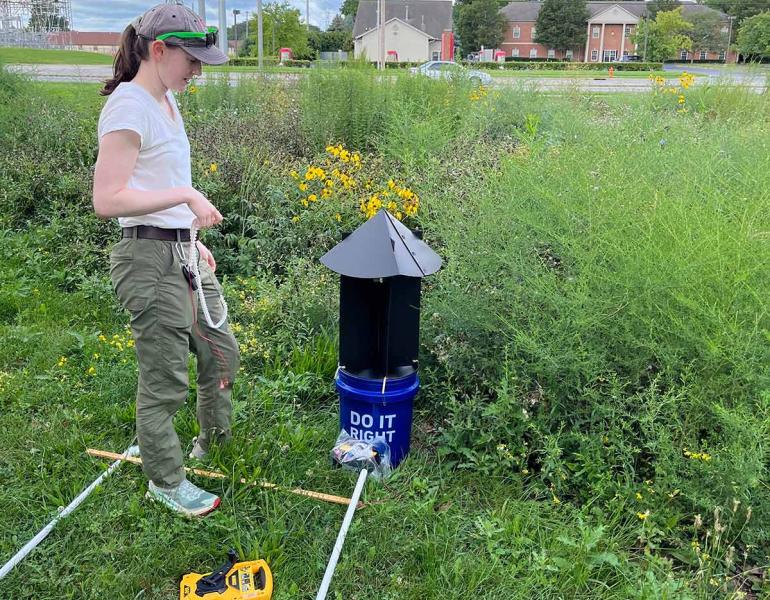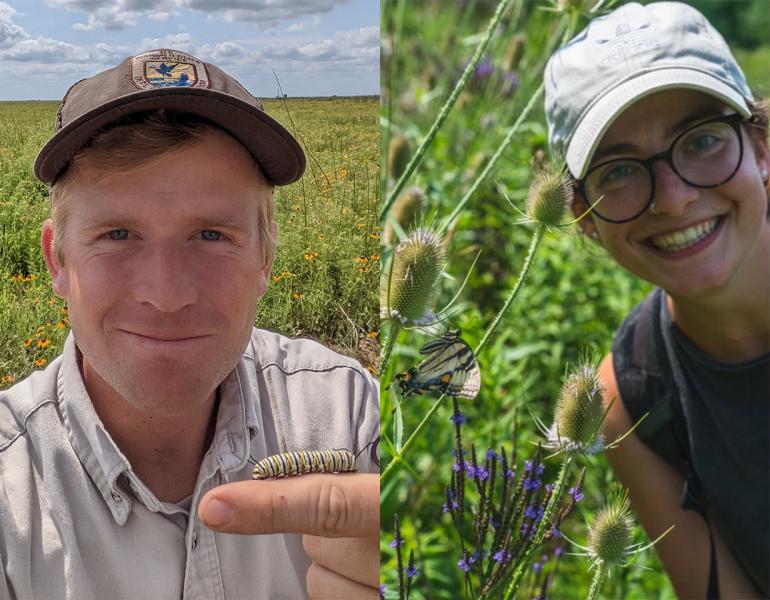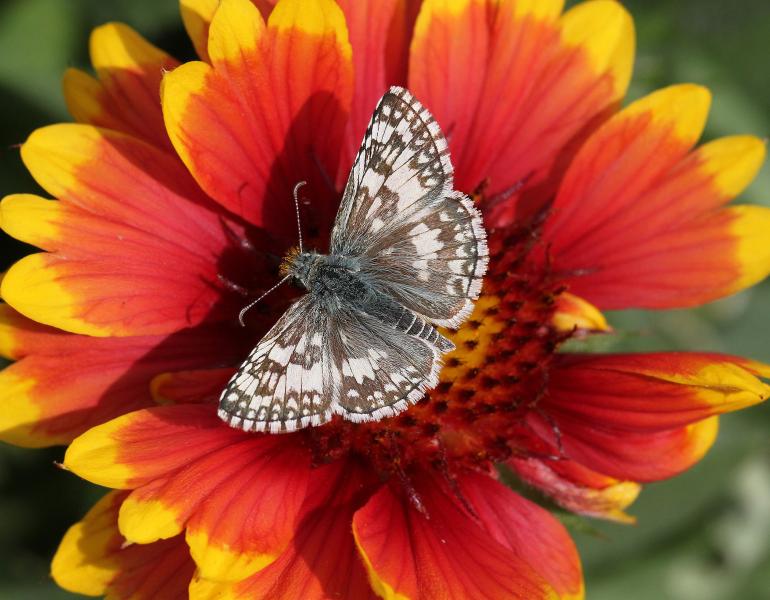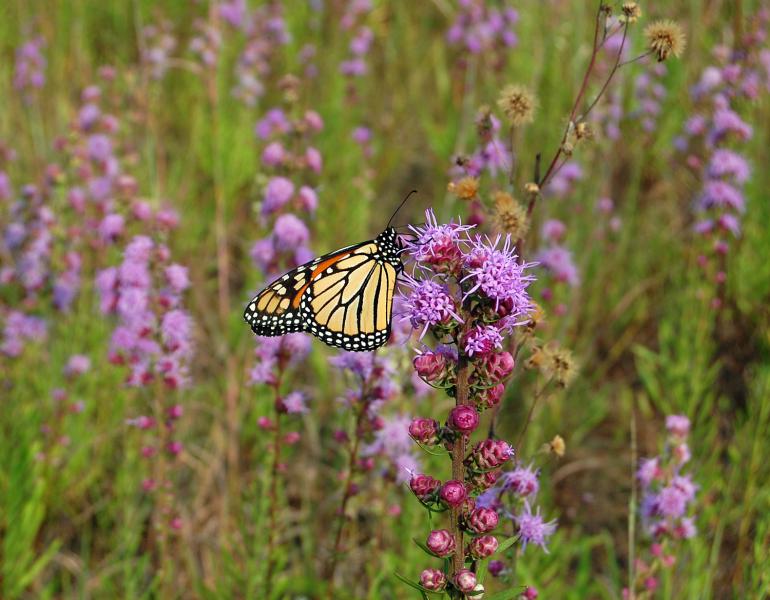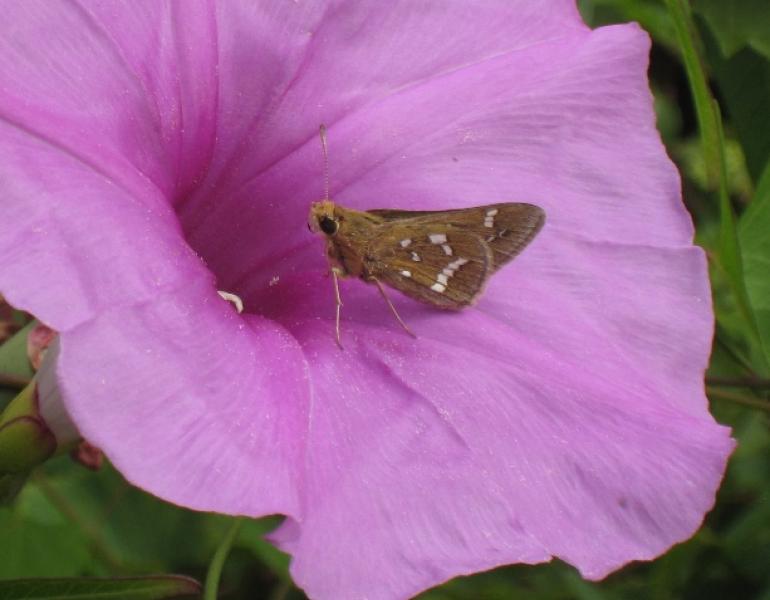We are excited to announce this year's two award winners: Lillian Hendrick and Lucy Guarnieri!
DeWind Award
2023 DeWind Awards Support Research into Pollinator Corridors and the Impacts of Fire Ants on Monarch Butterflies
Xerces' annual Dewind Awards support students researching Lepidoptera conservation. This year's awardees are studying how land use shapes butterfly connectivity and the impacts of invasive ants on monarch butterfly reproduction.
Announcing the 2022 DeWind Awardees
Every spring, the Xerces Society gives out at least two awards for students engaged in research related to Lepidoptera conservation, made possible through the Joan Mosenthal DeWind Awards program. This year, we are thrilled to announce our two awardees, both of whom are PhD candidates: Chris Cosma of University of California-Riverside and Brendan Carson of Tufts University.
Announcing the 2021 DeWind Award Winners
The DeWind Awards are given annually to students engaged in research related to butterfly or moth conservation. The 2021 winners are Wendy Valencia-Montoya and Chris Halsch.
Announcing the 2020 DeWind Awardees
In the midst of so much uncertainty, Xerces is heartened to continue our annual grant program—the Joan Mosenthal DeWind Award for student research into Lepidoptera (butterfly and moth) conservation. This year, we are thrilled to award three students research grants: Douglas Boyes, Jayme Lewthwaite, and Max Ferlauto.
DeWind Alumnae Publish Three New Research Papers about Monarch Butterflies
Together, these publications contribute to our growing understanding of how human actions can hurt—or help—monarchs.
Announcing the 2019 DeWind Awardees
The Xerces Society is happy to announce the 2019 DeWind awardees: Niranjana Krishnan, a PhD candidate at Iowa State University, and Molly Wiebush, a master’s student at Florida State University.
The Crystal Skipper: North Carolina’s Newest Butterfly Species
Last week, a butterfly found along the North Carolina coast was officially named as a new species.

